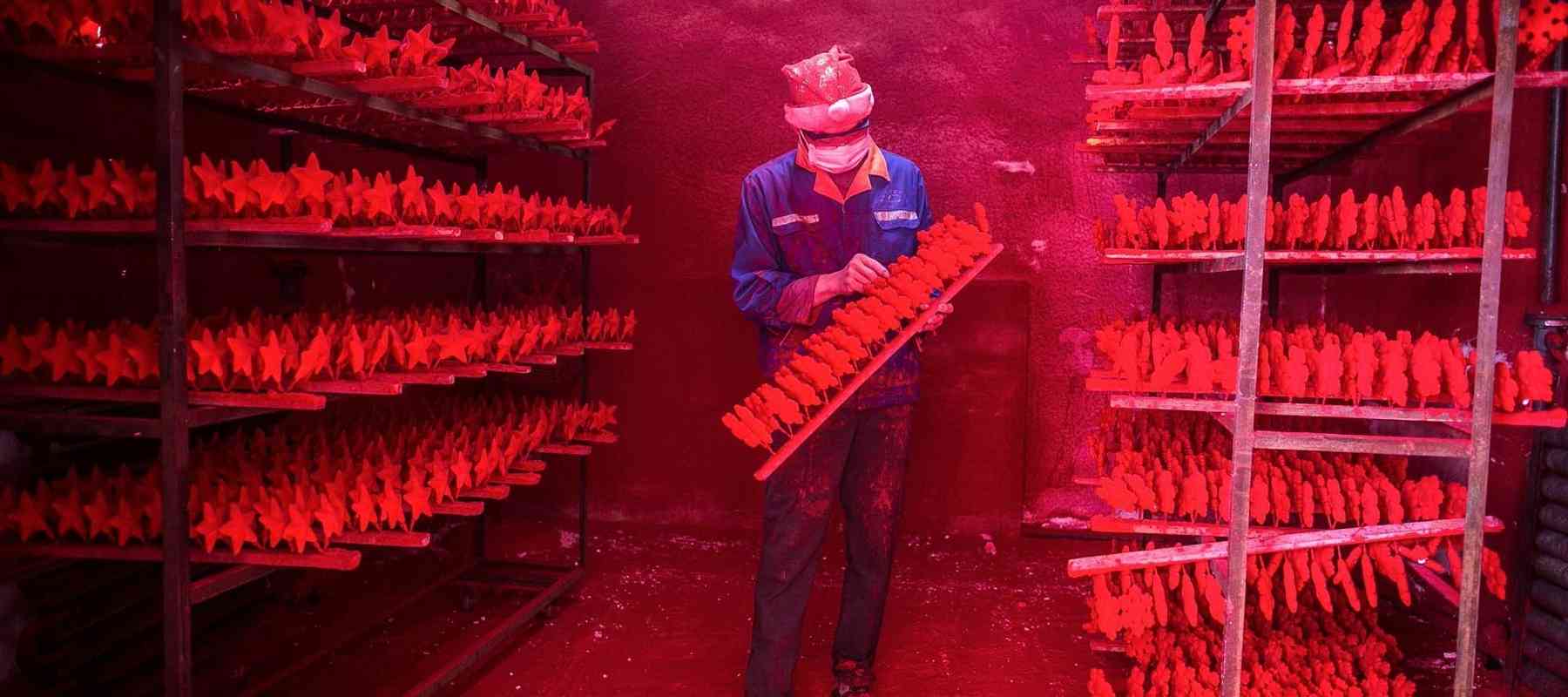When you decorate your home with festive Christmas decorations each year, you may not pause to think about where they are made. If you do give this matter a second thought, a passing image of elves tinkering away in a charming North Pole workshop may come to mind. The reality, however, is that many of your holiday decorations are likely made in Yiwu, China. This is a very commercialized environment that is anything but the vision of Santa's Workshop that may come to mind. In fact, snow, pine trees and reindeer are nowhere to be found.
The workshops in Yiwu where many decorations are produced are not festively decorated with blinking lights, and it does not smell like cookies and hot cocoa. Altogether, there are more than 600 factories in this Chinese town that produce more than 60 percent of the world’s holiday decorations and related items each year. This includes artificial Christmas trees, holiday lighting, painted red stars and more. The factories are usually staffed by poorly paid migrant workers who typically put in a 12-hour work day in often unpleasant work conditions. To make matters worse, many of the workers do not know anything about the holiday that the decorations are used for.
One worker who makes polystyrene red snowflakes that are painted with a powder-coating method goes through almost a dozen face masks each day to avoid inhaling the red powder that he works with. He and one other worker manually paint more than 5,000 of these decorations each day. Many of the items produced in Yiwu factories make their way to the Yiwu International Trade Market, which has 62,000 booths for shoppers to explore and spans across four kilometers of city streets. According to the UN, this is the largest wholesale market of its kind in the world. It is comprised of two districts, and one of those two districts is entirely dedicated to holiday décor.
This huge market, however, may soon be a thing of the past. Online shopping is changing the way holiday goods are sold. For example, shoppers on the popular Alibaba and Made in China websites now have access to 1.4 million holiday decorations that can be delivered directly to a shopper’s door. Yiwu’s 600 factories, on the other hand, only produce 400,000 items. As proof, sales to international customers has fallen. Nonetheless, holiday décor for the local festival of Mammon have increased over the last year.
While it may initially seem unpleasant and even harsh to work in this type of environment producing and selling holiday décor for the rest of the world, not everyone is unhappy about their lot in life. One worker at a booth in the wholesale marketplace states that being surrounding by so many joyous Christmas baubles, trinkets and other decorative items puts him in a happy mood most days. The production line workers who sweat in unpleasant work environments for a low wage, however, may not be as happy about their current work experience.




